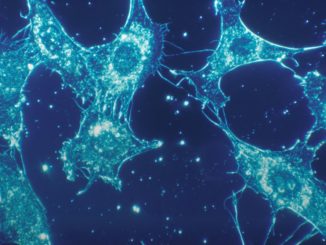
Religion
At present the application of PCT to Religion is also at its early stages. One exception is Lynndal Daniels’ blog on PCT and Buddhism, which links the Method of Levels, a psychotherapy that is a direct application of Perceptual […]

At present the application of PCT to Religion is also at its early stages. One exception is Lynndal Daniels’ blog on PCT and Buddhism, which links the Method of Levels, a psychotherapy that is a direct application of Perceptual […]

Bill Powers developed PCT with biology in mind. We can split the relevance of PCT into two parts – function and structure. […]

Spiritual truths, 21st Century Renaissance, Computer Games, Pop and Rock Music, & more! […]

To manage a successful business, you need to know what people want, how your business is perceived, and how to deal with people. It’s ripe for a PCT approach! […]

PCT is emerging as a force in robotics. PCT lends itself well to the fields of artificial intelligence and robotics because it provides an exact mathematical framework to model psychological processes. […]

In explaining how living things control their perception, PCT is clearly highly relevant to psychology. Contemporary articles are making the case to the wider establishment that closed-loop, circular causality is much closer to how living systems actually function than the approach researchers still use. […]

When people find themselves struggling control has been disrupted. It is the loss of control not control, therefore, that is the problem when people are psychologically distressed. […]

Education is about more than teaching. Within education we need to know how to motivate students, how can we maximise the degree to which people learn, and often, how do we manage students or pupils when they don’t want to learn, or they disrupt others? […]

PCT takes a strongly scientific approach to human nature. It proposes that people and other living systems are purposeful – and that the systems that are responsible for purposeful action are explainable in mechanistic terms. […]

At present, the application of PCT to Law is at its early stages. Hugh Gibbons is one exception. He has co-authored a biological model of human rights based around the tenets of PCT and he also illustrates a case using PCT in this book, “The Death of Jeffrey Stapleton”, published online. […]

A comprehensive introduction to PCT and its implications for the social and physical environment, on a global scale, are described in an online article by Kent McClelland. There are also a number of online articles that relate […]

Method of Levels introductory text to follow
Copyright © 2022 iapct.org